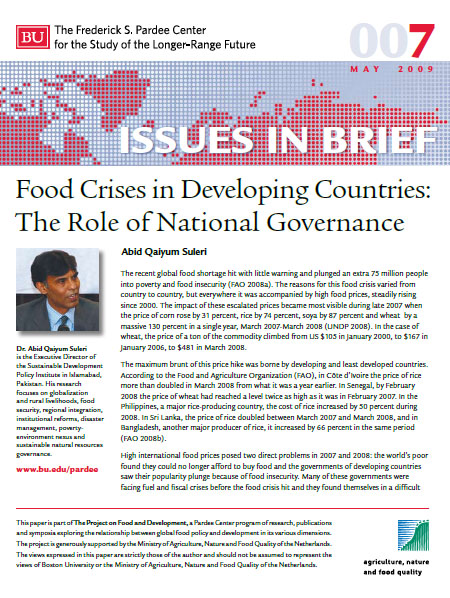Issues in Brief, No. 7, May 2009
 Food Crises in Developing Countries: The Role of National Governance
Food Crises in Developing Countries: The Role of National Governance
By Abid Qaiyum Suleri
May 2009 (8 pages)
Download PDF
This paper looks at the recent price increases in food commodities and using Pakistan as a case study it concludes the national governance is a key component in understanding what happened and why. The paper concludes: “Here is the lesson that the world in general and countries like Pakistan in particular should draw from the soaring food prices: improve national food governance in the short run and sustain it in the medium and long term; and make long-term investment in the food supply chain at all levels. After all, it is the political action or inaction that determines whether a famine will occur or not.”
This paper is part of The Project on Food and Development, a Pardee Center program of research, publications and symposia exploring the relationship between global food policy and development in its various dimensions. The project is generously supported by the Ministry of Agriculture, Nature and Food Quality of the Netherlands. The views expressed in this paper are strictly those of the author and should not be assumed to represent the views of Boston University or the Ministry of Agriculture, Nature and Food Quality of the Netherlands.
Dr. Abid Qaiyum Suleri is the Executive Director of the Sustainable Development Policy Institute in Islamabad, Pakistan. His research focuses on globalization and rural livelihoods, food security, regional integration, institutional reforms, disaster management, povertyenvironment nexus and sustainable natural resources governance.